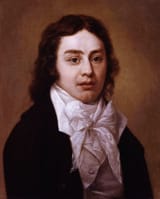>>24676017
>I believe Shakspeare was not a whit more intelligible in his own day than he is now to an educated man, except for a few local allusions of no consequence. As I said, he is of no age—nor, I may add, of any religion, or party, or profession. The body and substance of his works came out of the unfathomable depths of his own oceanic mind: his observation and reading, which was considerable, supplied him with the drapery of his figures.
— Samuel Taylor Coleridge
>>24676050
Prosody has nothing to do with intelligibility, and Shakespeare wasn't fluent in Latin. You're thinking of Marlowe, who translated Ovid and whose poetry bears the strong impress of Latin quantitative metre, which then influenced Shakespeare's and all later verse.
